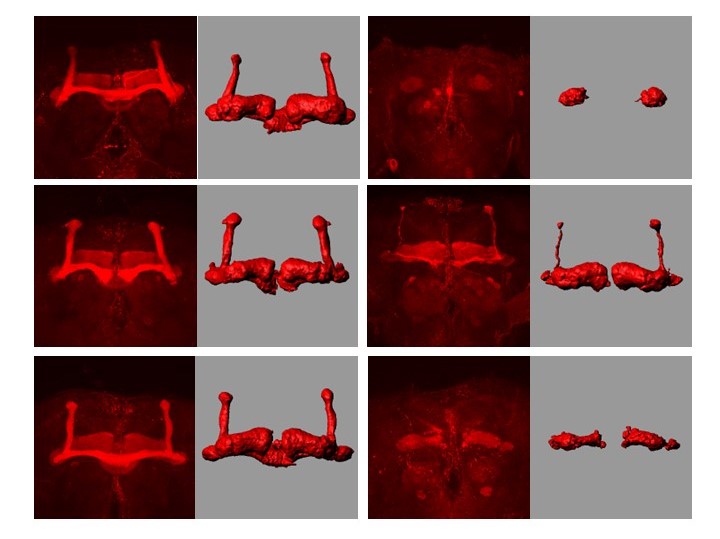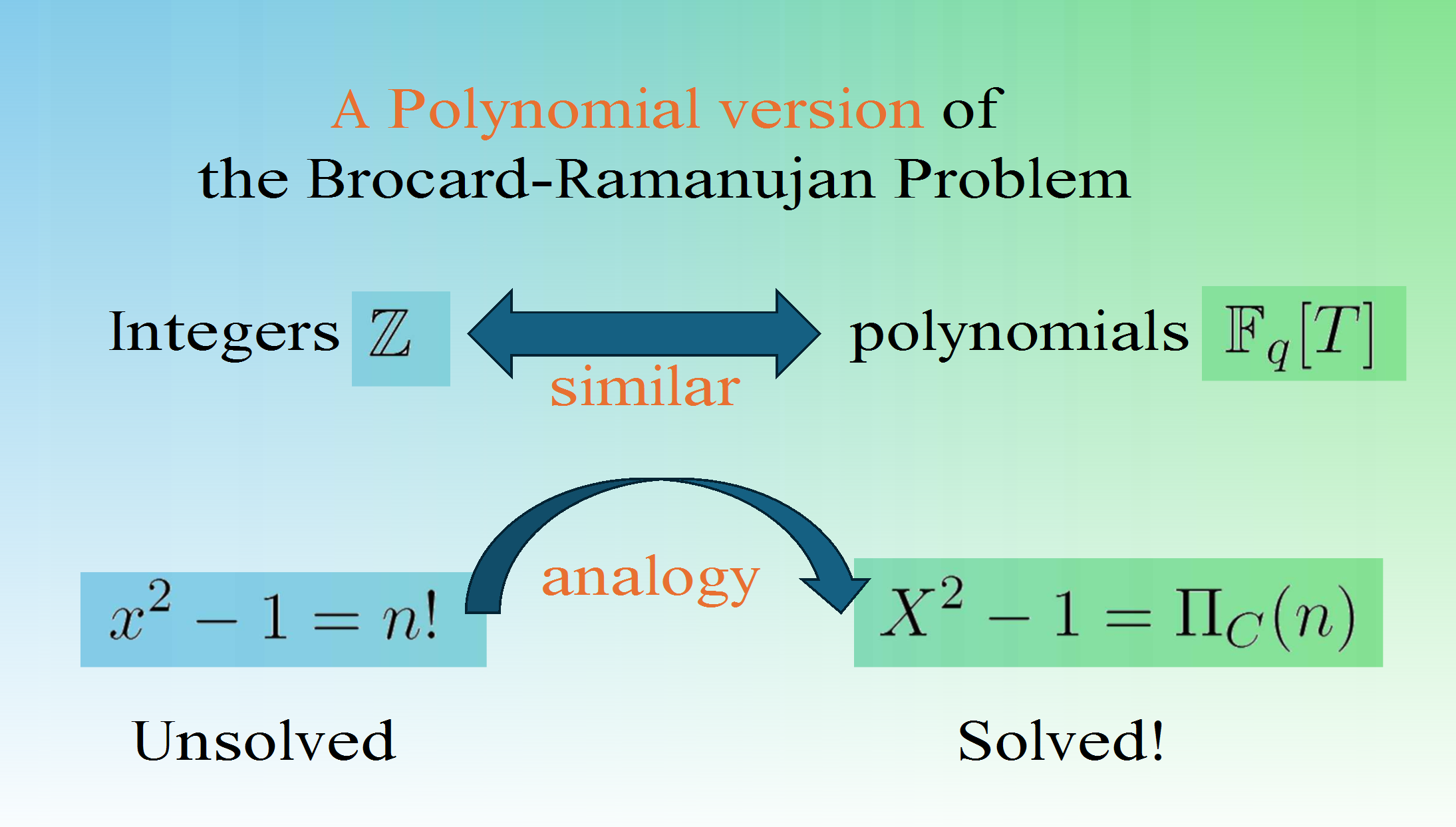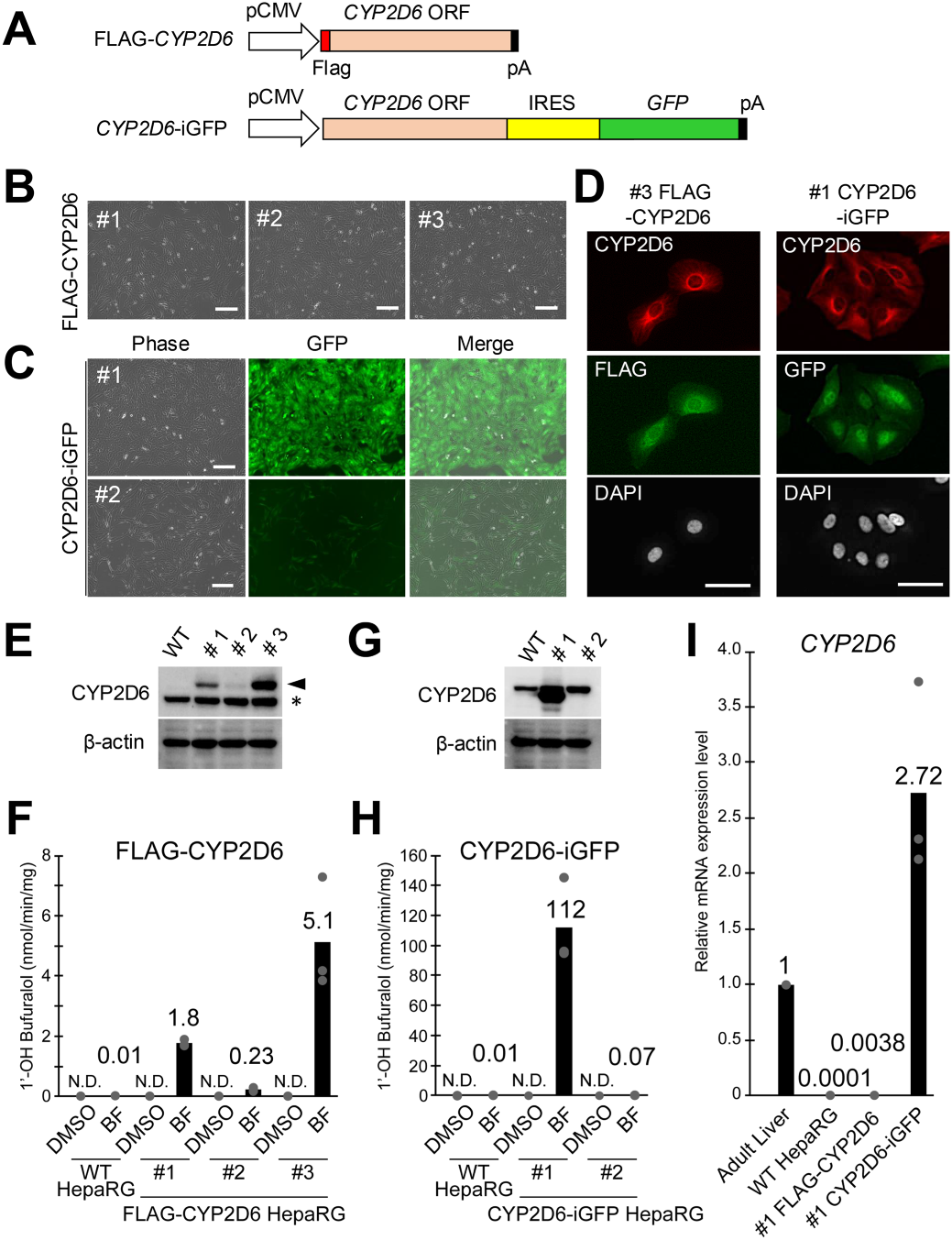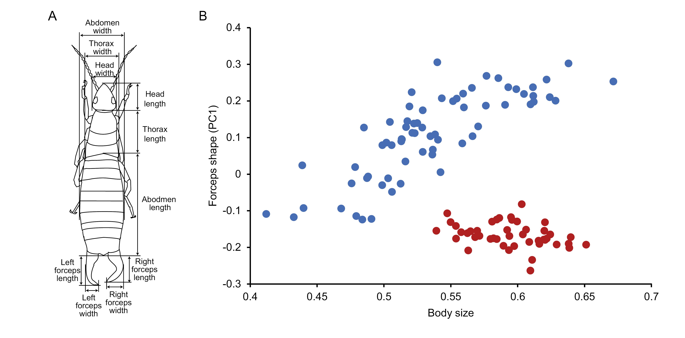December 25, 2024
Elucidation of the Mechanism Behind Frontotemporal Lobar Degeneration
Loss of VCP Gene Function During Neural Development causes the disease

This research was supported by a grant-in-aid for scientific research (C) from the Japan Society for the Promotion of Science (JSPS) and the Joint Usage/Research Program of the Medical Research Institute, Institute of Science Tokyo.
The findings were published on December 23, 2024, in Disease Models & Mechanisms.



This research was supported by a grant-in-aid for scientific research (C) from the Japan Society for the Promotion of Science (JSPS) and the Joint Usage/Research Program of the Medical Research Institute, Institute of Science Tokyo.
The findings were published on December 23, 2024, in Disease Models & Mechanisms.


Morphology of the mushroom body of the FTLD (frontotemporal lobar degeneration) model fruit flies. Alterations in the morphology of mushroom bodies in VCP/TER94 knockdown flies were rescued by the coexpression of wild-type VCP/TER94, but to a lesser extent by the coexpression of disase-associated mutant VCP/TER94.
Key Points:
- Mechanisms underlying FTLD caused by variants in the VCP gene.
- The abnormal proliferation of neural stem cells during neural development, triggered by the loss of VCP gene function, led to neurodegenerative symptoms.
- This study provides fundamental knowledge for developing future treatments for FTLD.
Research Overview:
FTLD is a major cause of dementia with a prevalence second only to that of Alzheimer’s disease and Lewy body dementia. Mutations in the VCP gene are known to cause hereditary FTLD. Previous collaborative studies, including those by Professor Hitoshi Okazawa’s team at Institute of Science Tokyo and Associate Professor Masaki Sone’s team at Toho University, identified that DNA damage during the fetal stage affects the onset of FTLD after decades of using a mouse model (Homma et al., Life Sci. Alliance 2021).
Here, we employed a fruit fly model to show that the loss of VCP gene function leads to abnormal proliferation of neural stem cells during the developmental stage. This abnormality has been identified as a direct cause of neurodegenerative symptoms. These findings offer fundamental insights for the development of new treatments for FTLD.
FTLD is a major cause of dementia with a prevalence second only to that of Alzheimer’s disease and Lewy body dementia. Mutations in the VCP gene are known to cause hereditary FTLD. Previous collaborative studies, including those by Professor Hitoshi Okazawa’s team at Institute of Science Tokyo and Associate Professor Masaki Sone’s team at Toho University, identified that DNA damage during the fetal stage affects the onset of FTLD after decades of using a mouse model (Homma et al., Life Sci. Alliance 2021).
Here, we employed a fruit fly model to show that the loss of VCP gene function leads to abnormal proliferation of neural stem cells during the developmental stage. This abnormality has been identified as a direct cause of neurodegenerative symptoms. These findings offer fundamental insights for the development of new treatments for FTLD.
Journal:
Disease Models & Mechanisms (December 23, 2024)
Title:
Loss of function of VCP/TER94 causes neurodegeneration
Authors:
Kohei Tsumaki, Christian J. F. Bertens, Minoru Nakayama, Saya Kato, Yuki Jonao, Ayu Kuribayashi, Konosuke Sato, Shota Ishiyama, Momoko Asakawa, Riko Aihara, Yuki Yoshioka, Hidenori Homma, Hikari Tanaka, Kyota Fujita, Hitoshi Okazawa, and Masaki Sone*
DOI:
10.1242/dmm.050359
Disease Models & Mechanisms (December 23, 2024)
Title:
Loss of function of VCP/TER94 causes neurodegeneration
Authors:
Kohei Tsumaki, Christian J. F. Bertens, Minoru Nakayama, Saya Kato, Yuki Jonao, Ayu Kuribayashi, Konosuke Sato, Shota Ishiyama, Momoko Asakawa, Riko Aihara, Yuki Yoshioka, Hidenori Homma, Hikari Tanaka, Kyota Fujita, Hitoshi Okazawa, and Masaki Sone*
DOI:
10.1242/dmm.050359
READ MORE RESEARCH NEWS - SCIENCE
ACADEMICS
Undergraduate Programs
– Medicine
– Pharmaceutical Sciences
– Science
– Nursing
– Health Science
Graduate Programs
–Medicine
–Pharmaceutical Sciences
–Science
–Nursing
Undergraduate Programs
– Medicine
– Pharmaceutical Sciences
– Science
– Nursing
– Health Science
Graduate Programs
–Medicine
–Pharmaceutical Sciences
–Science
–Nursing
RESEARCH
– News
– Guidelines & Policies
– Support Offices
– Facilities
– Security Export Control
Non-Degree Programs
– Clinical Elective Program
– International Physician Observership Program




